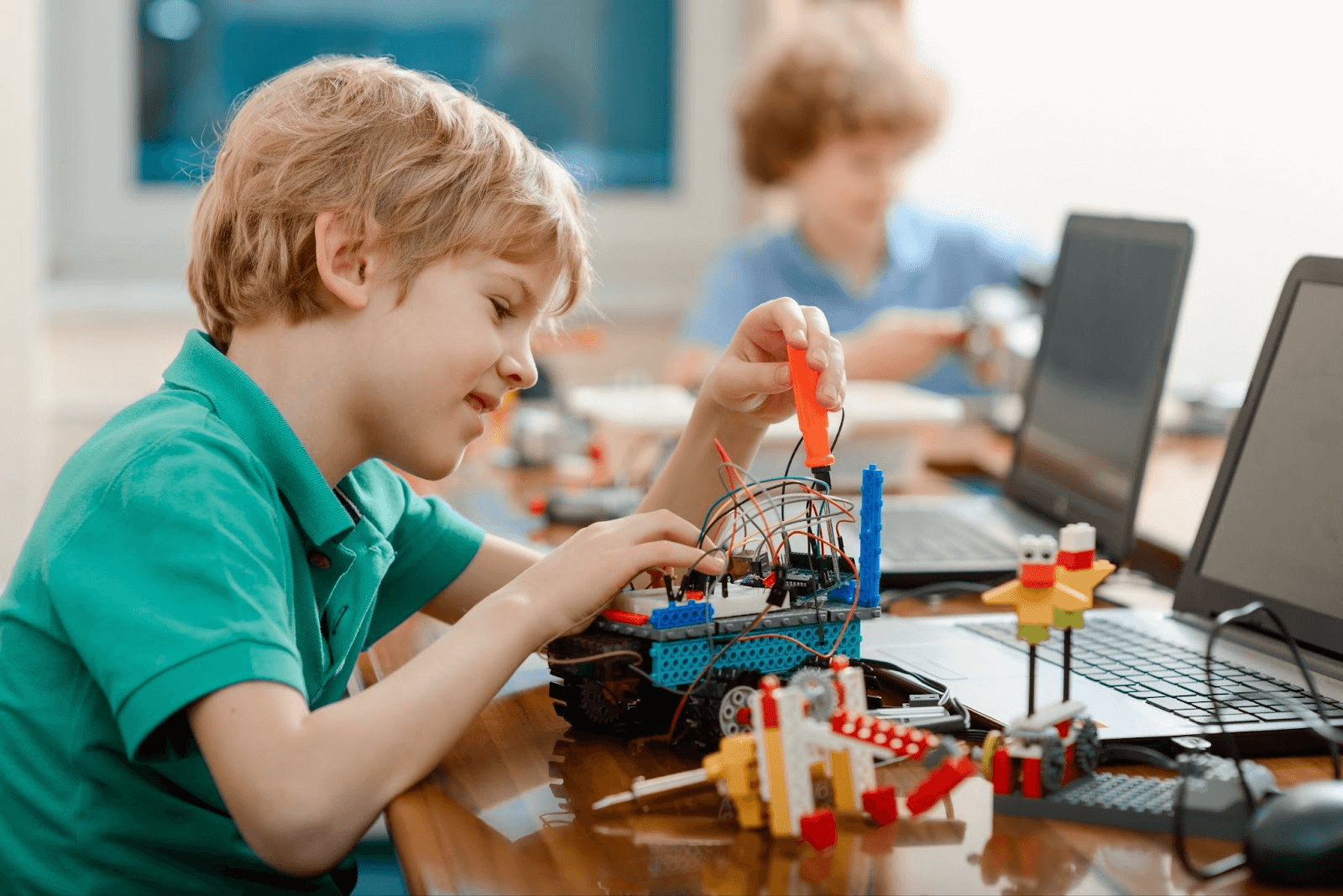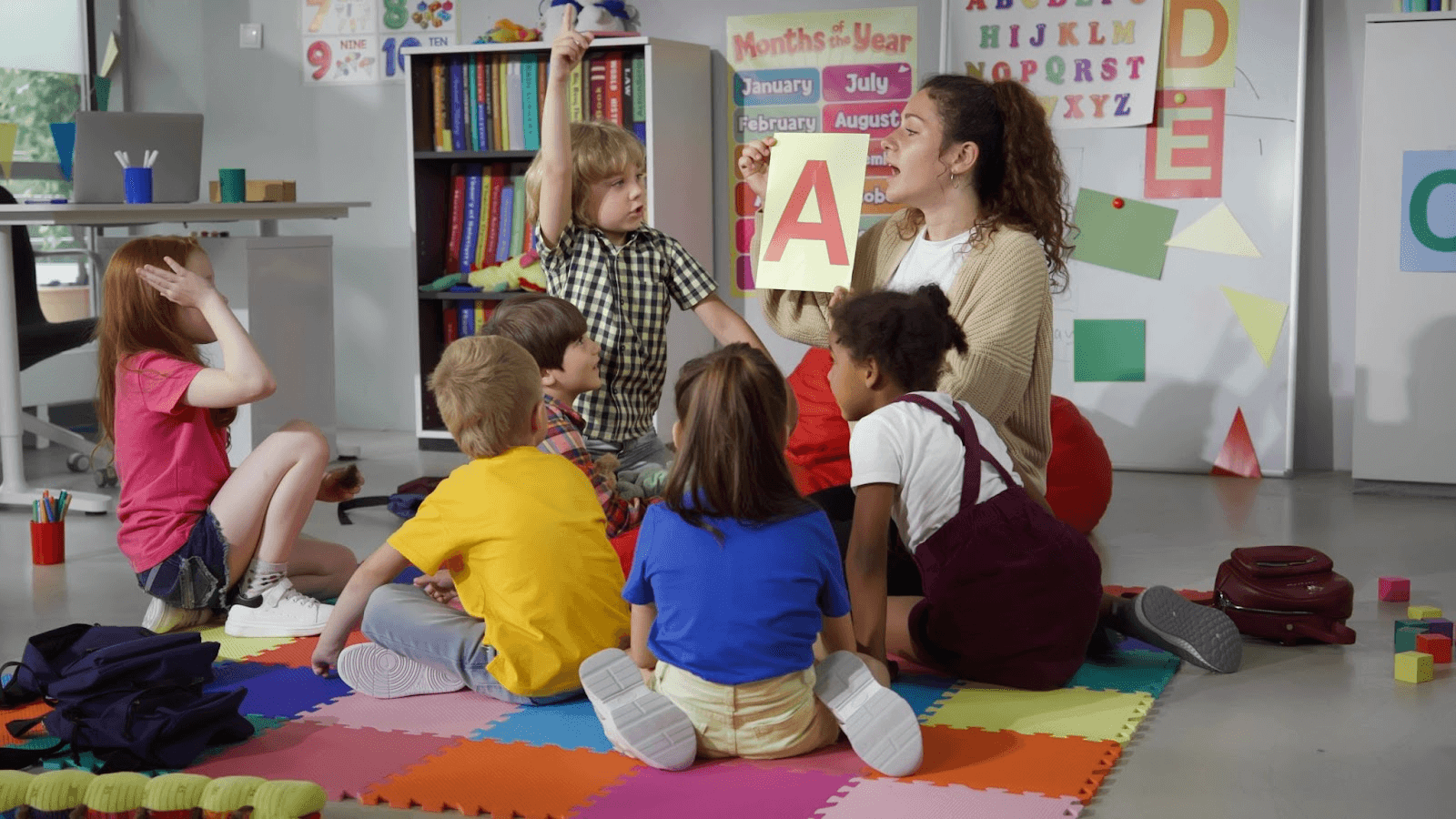In the vibrant city of Houston, parents are faced with a crucial decision: traditional daycare or the intimacy of in-home childcare.
Each option comes with its unique set of pros and cons, shaping the early experiences of your little one.
Let’s delve into the factors that can guide you in making the best choice for your child’s development and peace of mind.
What is In-Home Daycare?
In-home daycare is an arrangement where caregivers operate out of their residence, providing children with a more intimate and personalized setting.
Typically, a limited number of children are cared for, allowing for individualized attention and a family-like atmosphere.
In-home daycare providers often offer a flexible schedule and may incorporate various educational and play activities tailored to the specific needs and interests of the children under their care.
What is a Daycare Center?

On the other hand, a daycare center is a formal childcare facility designed to accommodate many children.
These centers are typically staffed by trained professionals who follow specific guidelines and regulations. Daycare centers often provide structured learning activities, socialization opportunities, and a more comprehensive range of resources.
They may have designated areas for different age groups, offering age-appropriate developmental activities.
The Pros of Choosing a Houston Daycare
Houston daycares offer many advantages when entrusting your child’s care to a professional setting.
Comprehensive Learning Curriculum
Daycare centers often provide a structured educational program that promotes cognitive, social, and emotional development.
Trained professionals craft these curricula to ensure age-appropriate activities and stimulation, laying a solid foundation for your child’s future academic success.
Socialization and Peer Interaction
Daycare environments facilitate crucial socialization opportunities for children. Interacting with peers helps develop essential social skills, teaching cooperation, communication, and conflict resolution.
Licensed and Trained Caregivers
These professionals undergo specific education and training to understand child development, safety protocols, and effective teaching methods. Choosing a daycare ensures your child is supervised by individuals with the expertise to provide quality care and education.
Structured Safety Protocols
These facilities implement structured safety protocols to create a secure environment for children. From emergency procedures to child-proofing measures, daycare centers prioritize the well-being of each child under their care, offering parents peace of mind throughout the day.
Established Health and Safety Standards
Houston daycares adhere to established health and safety standards set by regulatory bodies. Regular inspections and adherence to guidelines ensure that the facilities maintain a clean and hygienic environment. This commitment to health and safety protects the children’s well-being and instills good habits for their overall health and development.
The Pros of Opting for In-Home Childcare

In-home childcare presents a compelling alternative to traditional daycare centers, offering a range of benefits catering to the unique needs of parents and children.
Individualized Attention and Bonding
With fewer children under care, caregivers can tailor their approach to each child’s needs, fostering a strong and personalized connection. This close relationship can contribute significantly to a child’s emotional well-being and overall development.
Flexible Schedules and Personalized Care
In-home childcare often provides more flexibility in terms of schedules and care arrangements. Caregivers can work with parents to create a customized routine that aligns with the family’s specific needs, offering convenience and peace of mind.
Potential for Smaller Caregiver-to-Child Ratios
In-home settings usually involve fewer children, allowing caregivers to focus more on each child’s needs. This intimate environment promotes children’s sense of security and comfort as they receive more individualized care and attention.
Comfort of a Home Environment
The home environment is comforting for many parents opting for in-home childcare. It provides a familiar and secure setting, which can be especially beneficial for younger children. The homely atmosphere can ease the transition from home to childcare, creating a sense of continuity and comfort for the child throughout the day.
Potential Cost Savings
With fewer overhead expenses, such as facility maintenance and staffing costs, in-home caregivers might provide quality care at a more affordable rate. This financial advantage can be a significant consideration for families seeking reliable childcare without compromising quality.
Factors to Consider for Daycare
As parents weigh their childcare options, daycare centers emerge as popular choices, offering structured environments for early childhood development.
Potential for Larger Class Sizes
One consideration in daycare settings is the potential for larger class sizes. While daycare centers provide socialization opportunities, a higher child-to-caregiver ratio may mean that individualized attention can be limited. Parents should assess their child’s comfort in a more dynamic and group-oriented setting, considering the impact of larger class sizes on their child’s learning and well-being.
Structured Schedules and Limited Flexibility
While this predictability can be beneficial for parents with regular working hours, it may pose challenges for those with non-traditional schedules. Limited flexibility in drop-off and pick-up times can be a factor to consider when evaluating the compatibility of a daycare center with the family’s routine.
Transitioning from Home to a Daycare Setting
Adapting to a new routine, interacting with unfamiliar faces, and navigating group dynamics are aspects parents should anticipate. Understanding how the daycare facilitates this transition and supports the child’s emotional well-being during this period is crucial for smooth integration into the daycare environment.
Cost Considerations
Parents should carefully evaluate the financial implications, considering tuition fees, additional activity costs, and any other expenses related to the daycare. Balancing the quality of care with budgetary constraints is an essential aspect of the decision-making process.
Availability and Waitlist Concerns
Due to the popularity of quality daycare centers, availability can be a challenge. Parents may encounter waitlists, especially for centers with excellent reputations or specific program offerings.
Planning well in advance and understanding the enrollment process can help parents navigate these challenges and secure a spot for their child in their preferred daycare center.
Factors to Consider in In-Home Childcare
While in-home childcare offers personalized care and a homely atmosphere, parents need to be aware of the potential drawbacks of this choice.
Limited Socialization Opportunities
One notable concern with in-home childcare is the potential for limited socialization opportunities. Unlike daycare centers that expose children to larger groups, in-home settings may have fewer peers for interaction. Parents should weigh the importance of early socialization in their child’s development and consider supplementing it with additional social activities to ensure a well-rounded experience.
Variable Quality and Certification
In-home childcare settings may vary in terms of quality and certification. Unlike daycare centers that adhere to strict licensing requirements, individual caregivers may not undergo the same level of scrutiny. Parents must thoroughly vet in-home providers, checking their qualifications, certifications, and references to ensure a safe and conducive environment for their child’s growth.
Potential for Less Structured Learning
Parents should consider the educational approach of the caregiver, ensuring that it aligns with their expectations for their child’s early development. Communication with the caregiver to understand their approach to learning is crucial in maintaining a balance between flexibility and educational stimulation.
Legal and Regulatory Challenges
In-home childcare may pose legal and regulatory challenges, especially if the caregiver is not well-versed in licensing requirements or faces changes in local regulations.
Parents should stay informed about relevant laws and regulations governing in-home childcare in their area, ensuring that the caregiver complies with necessary standards to guarantee the safety and legality of the arrangement.
Dependence on a Single Caregiver
Unlike daycare centers with multiple staff members, the absence or unavailability of an in-home caregiver may disrupt the childcare routine. Parents should have contingency plans in place and discuss with the caregiver about backup arrangements to address any unexpected situations, ensuring continuity in the child’s care.
Making the Decision

Choosing between in-home childcare and a daycare center is a significant decision that hinges on various factors. Understanding these considerations allows parents to align their choices with their child’s unique needs and the family’s lifestyle.
1. Child’s Age and Developmental Needs
The age and developmental stage of the child play a pivotal role in the decision-making process. Younger children may benefit from the intimacy and personalized attention of in-home childcare. In comparison, older children might thrive in the structured environment of a daycare center with opportunities for socialization and learning. Assessing the child’s specific developmental needs helps tailor the choice to provide the most conducive environment for their growth.
2. Parental Work Schedules and Flexibility
The demands of parental work schedules and flexibility are crucial factors. In-home childcare often offers more flexibility regarding hours and drop-off/pick-up arrangements, catering to parents with non-traditional work hours. On the other hand, daycare centers with set schedules might be more suitable for parents with regular working hours. Aligning the childcare choice with the family’s work routine ensures a harmonious balance between professional and family life.
3. Budget and Cost Considerations
Financial considerations are paramount in the decision-making process. Daycare centers often come with tuition fees and additional costs, while in-home childcare may offer more cost flexibility. Parents should evaluate their budget constraints and weigh the financial implications of each option, considering not only the immediate costs but also the long-term impact on their overall financial planning.
4. Health and Safety Priorities
Ensuring the health and safety of the child is a top priority. Daycare centers adhere to strict health and safety standards with structured protocols. In-home childcare relies on the caregiver’s commitment to maintaining a safe environment. Parents should assess their comfort level with the safety measures in each setting and the caregiver’s ability to respond to emergencies.
5. Individual Child and Family Preferences
Every child and family is unique, and preferences play a significant role in decision-making. Some children may thrive in the social atmosphere of a daycare center, while others may benefit more from the personalized care of in-home childcare. Considering the family’s values, cultural preferences, and temperament helps ensure that the chosen childcare option aligns with the overall well-being and happiness.
Navigating Childcare Choices in Houston, TX, with Growing Minds Academy
As parents weigh the options of in-home childcare and daycare centers in Houston, TX, the choice ultimately rests on carefully considering individual factors.
Growing Minds Academy stands as a testament to the diverse childcare options available. Whether opting for the personalized touch of in-home childcare or the structured environment of a daycare center, the key is aligning the choice with the unique needs of the child, the family’s lifestyle, and the commitment to providing a nurturing and enriching environment for their growing minds.
As the journey of early childhood education unfolds, the decisions made today will undoubtedly shape the foundation for a lifetime of learning and development.



